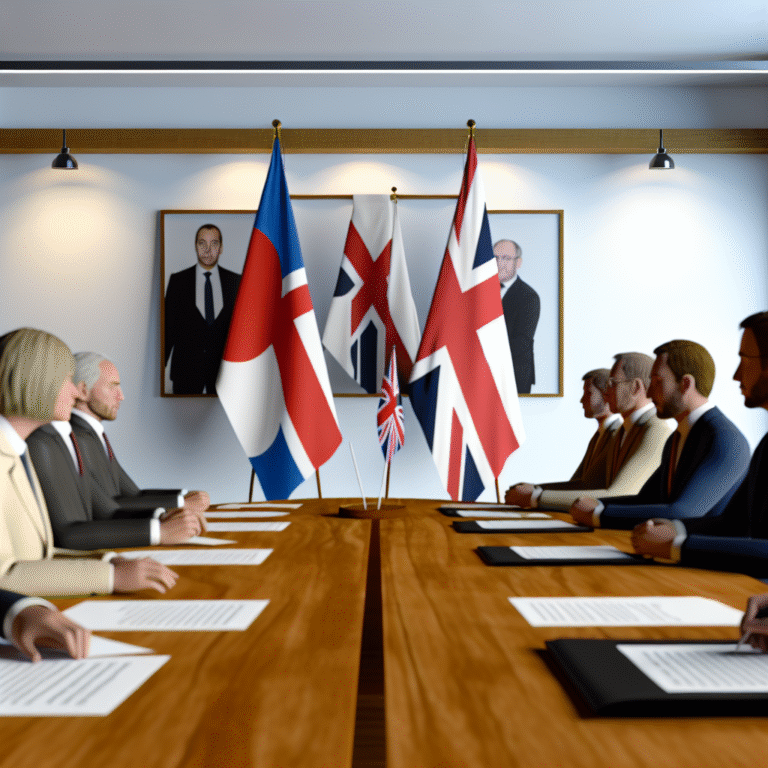Greenland and UK Set to Resume Free Trade Negotiations: A Boon for Fisheries
The chairman of Naalakkersuisut, Jens-Frederik Nielsen, recently concluded discussions with British Prime Minister Keir Starmer, paving the way for renewed negotiations on a pivotal free trade agreement between Greenland and Great Britain. This move comes in the wake of Greenland’s fish and shellfish products becoming up to 20 percent more expensive for British consumers since the UK exited the EU in 2020.
Initial talks around a trade agreement commenced in 2022, aiming to abolish British import duties on Greenlandic offerings. If successful, the deal would result in lower prices for seafood enjoyed by shoppers and diners across Britain. However, negotiations hit a pause ahead of last year’s general election but are now back on track, according to a statement from the British Ministry of Business and Commerce.
Significance for Royal Greenland
For Royal Greenland, the nation’s largest fishing enterprise, the resumption of these talks could not be more timely. The company has faced significant financial setbacks since the onset of Brexit, reporting a staggering loss of approximately DKK 331 million, largely from reduced revenue in the UK market. Robert-Jan Treebus, Vice President of Sales at Royal Greenland, noted the ramifications of new customs costs, particularly on cod, halibut, and snow crabs.
“We’ve had to contend with tariffs of up to 20 percent on seafood exports since the UK left the EU,” Treebus explained. “This has not only raised consumer prices but also limited choices for British restaurants and fish processors, ultimately affecting their customers.”
While cold-water shrimp exports have notably avoided these tariffs due to a special arrangement, the broader economic implications of a free trade agreement are enticing. Eliminating customs duties would enhance Royal Greenland’s competitive edge in Britain, particularly for cold-water prawns, which are currently constrained by existing import quotas.
“As these unnecessary costs are lifted, it creates a win-win for everyone involved—from the fishermen to the end consumers,” Treebus commented. He emphasized the potential for growth, stability, and a more equitable supply chain, especially amid increasing delivery challenges from other global suppliers.
A Market of Importance
Currently, the UK stands as Royal Greenland’s most significant market for cold-water prawns, influencing sales for some of Greenland’s key seafood varieties. The restoration of free trade could also have positive ripple effects on the UK fish processing industry, which employed nearly 16,000 individuals in 2024.
“By removing tariffs on Greenlandic seafood, we can help reduce prices for consumers while bolstering thousands of jobs within our fishing sector,” noted Peter Kyle, the British Trade Minister, reflecting on the resumed negotiations.
In the years between 2020 and 2022, the UK imported seafood worth around £70 million annually, a figure that underscores the importance of this trade relationship.
Expansion Beyond Seafood
Interestingly, the trade agreement discussions may extend beyond fish. The British government is keen to include critical metals like copper and nickel in the talks. With British companies holding one-third of the licenses for extracting raw materials in Greenland, the potential for collaboration is ripe.
If negotiations culminate in a successful agreement, it would mark a significant milestone as Greenland’s first bilateral trade agreement, underscoring a new chapter in international trade relations for the Arctic nation.
